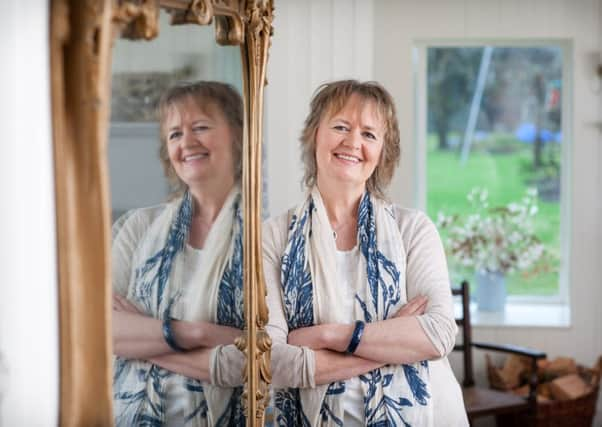Composer gives shell shock soldiers a musical voice


Equally unsurprising is the revelation that the experience of writing her latest large-scale work – a 50-minute symphonic cantata inspired by former poet laureate Andrew Motion’s “An Equal Voice”, itself based on actual soldiers’ accounts of shell shock contracted in both world wars – was an emotionally draining one.
“As a Quaker, I have a very particular perspective on the futility of war, the waste and tragedy,” she explains. “I very much wanted to express that, and Andrew’s poem absolutely does that because it’s about the living aftermath; not about the dead, but the walking wounded, and the whole question of what it does to the psyche when you train someone to kill.”
Advertisement
Hide AdMotion created his poem from material primarily derived from Ben Shephard’s history of military psychology in the 20th century, A War of Nerves, in particular the book’s direct quotations from soldiers who had been afflicted with post traumatic stress disorder, but who had hitherto lacked a voice to express their inner horror.
“We hear more from doctors than patients,” wrote Shephard, adding that “however hard he tries, the historian cannot even the account, cannot give the patients an equal voice, because most of them chose not to recount their experiences”.
If Motion’s poetic restructuring of this fascinating material went some way to redress the balance, Beamish’s Equal Voices – which receives its world premiere tomorrow night from the London Symphony Orchestra and Chorus at London’s Barbican Centre, and its Scottish premiere later this week from the Royal Scottish National Orchestra and RSNO Chorus, with soloists Marcus Farnsworth and Shuna Scott Sendall – is more than just a straight setting of Motion’s poem. It’s a far more interesting and creative collaboration, in which the composer has interspersed Motion’s harrowing words with her own choice of Biblical text from the redemptive, often sensuous, Song of Solomon.
“I wanted to counter the bleakness of the poems with some element of redemption,” says Beamish, a concern reinforced by the fact she had only just completed another grim, war-related commission, commemorating the Battle of Flodden for the Scottish Chamber Orchestra. “Andrew and I talked about using the words of the Requiem mass, but apart from it having been done before [a reference, no doubt, to Britten’s War Requiem and its poignant coupling of the Latin mass with Wilfred Owen’s poetry], I was keen that this piece should be about the living, about the future. The tragedy is what still exists in these victims’ minds because of what they’ve suffered, yet they still have to carry on.”
In the Song of Solomon, Beamish found words that helped shape the musical structure. Set in five sections, the Song of Solomon passages are presented as chorales, rather like Bach in his Passions, in contrast to the freer writing underpinning Motion’s poetry. At the apex of the arch-like structure, Beamish sets the biblical words “Behold, thou art fair, my love” as a love duet between the soprano and the baritone, a mood of complete stillness conceived around variations on the popular Renaissance tune, L’homme armé (the armed man).
“I felt it was important to express a balance between love and war,” says Beamish. “The Song of Solomon says love is as strong as death; it doesn’t say it’s stronger than death. It’s another expression of equal voices.”
Advertisement
Hide AdAs was Beamish’s insistence that the music be written with a balance between the male and female voice, itself an expression of the broader issues that entangle love and conflict. “It’s an intrinsic part of the human condition that we long for oneness with the rest of humanity, our longing for a connection with the beloved, that can mean God or each other. Yet we end up warring, in our private lives as well,” she says.
“I find that context – the fact that, although we long for love, we end up fighting – both interesting and moving. And in the Song of Solomon, with its references to the daughters of Jerusalem, I see complex resonances of what’s going on in the Middle East. I perceive an enormous sense of loss.”
Advertisement
Hide AdIn Equal Voices, Beamish uses gender to make her point. “The soprano begins: ‘whither is my beloved gone? I sought him but can’t find him.’ Then the baritone comes in with this nightmare description of war, and that’s where he’s gone, that’s where you get lost. If you become involved in war, you lose your humanity. He has, and she’s searching for him.”
Underlying all this is Beamish’s deep-rooted Quaker belief that nothing is to be gained from war. “In the case of the First World War, in particular, you can’t say that men gave their lives for a great cause, because they actually didn’t. If, though, you say that they died in vain for a futile cause, then you are emphasising the real tragedy of it.”
So is it a political work? “It’s more a redemptive one,” says Beamish. “I hope it’s about optimism. It ends very much looking to the future, with a vision for the future, ending with the most beautiful passage from the Song of Solomon: ‘The voice of the turtle is heard in the land’”. That final “land” is repeated almost endlessly. “I didn’t realise until after I’d written that passage what a great word it is to sing,” she says. “And of course, it’s what war is always about, wrangling over land, which often has a religious basis. We haven’t heard the voice of the turtle yet, but it’s something we can strive towards. And for me as a Quaker, it’s very much looking for a part of God in every man.”
•The RSNO, conducted by Rory Macdonald, performs Sally Beamish’s Equal Voices at the Usher Hall, Edinburgh, on 7 November, 0131-228 1155; and at Glasgow Royal Concert Hall on 8 November, 0141-353 8000